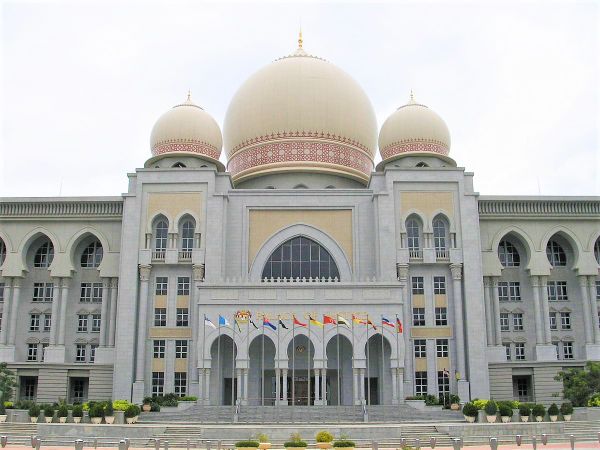By Danial Dzulkifly
SHAH ALAM, June 21 — The Federal Court’s ruling in the SIS Forum (Malaysia) case is being hailed as a landmark decision that upholds constitutional supremacy while clarifying the limits of religious authority, without diminishing the role of state Islamic institutions.
Legal experts say the judgment does not challenge the sanctity of Islam nor grant blanket immunity to companies, but instead draws a necessary distinction between religious rulings issued by state fatwa committees and the reach of Federal law.
They also believe that the judgment is precedent-setting and will guide future legal interpretations, unless overturned.
Advance Tertiary College academic director and senior law lecturer Daniel Abishegam said the decision was a welcome and consistent continuation of constitutional jurisprudence.
“The decision is a good one as it aligns with previous judgments like the Nik Elin case, clarifying the jurisdiction between state and Federal authorities under the Ninth Schedule of the Federal Constitution.
“The implications of the decision are that state religious authorities still have the authority to regulate all matters that come under the purview of Islam. This has not been affected in any way.
“However, what has been clarified is that any fatwa or religious ruling that is issued can only be against ‘persons professing the religion of Islam’ and a company or organisation does not fall within that definition,” he told Media Selangor.
On February 9, Nik Elin Zurina Nik Abdul Rashid and her daughter Tengku Yasmin Natasha Tengku Abdul Rahman won their legal challenge, first filed in May 2022, against the Kelantan state government, in which the Federal Court ruled that the Kelantan State Legislative Assembly did not have the power to enact 16 Syariah laws concerning criminal matters, which were deemed null, void, and unconstitutional.
The landmark case was essential in emphasising the principle of constitutional supremacy, as well as the distribution of legislative powers between the Federal and state governments in the country.
The apex court’s decision on Thursday (June 19) concerns a 2014 edict issued by the Selangor Fatwa Committee declaring SIS Forum and any parties promoting liberalism or religious pluralism as deviant.
The fatwa raised constitutional concerns over whether such rulings could apply to incorporated bodies.
In its majority judgment, the five-member Federal Court bench led by Chief Justice Tun Tengku Maimun Tuan Mat held that fatwas are binding only upon natural persons, namely Muslims who profess the faith, and cannot be extended to companies or institutions.
However, individuals behind such entities, like directors or shareholders, may still be held liable if found to be in breach of the fatwa.
Former Malaysian Bar president Salim Bashir Bhaskaran described the ruling as a “win-win” decision that balances constitutional safeguards with the continued authority of religious institutions.
“Succinctly, a fatwa is binding upon Muslim individuals and not companies. But the individuals, natural persons, who are the controlling minds of the companies, are bound by the fatwa,” he said.
Salim added that so long as the state fatwa issued does not transgress the jurisdictional competency of Federal laws, it remains valid.
In delivering the majority decision, Tengku Maimun emphasised that the court was not assessing the content of the fatwa itself, as that remains within the domain of state Islamic authorities.
However, the court made clear that any enforcement beyond the boundaries of state jurisdiction must remain subject to the Federal Constitution.
The ruling was decided through a constitutional lens, reinforcing the principle that the Federal Constitution is the supreme law of the land.
The majority bench included Court of Appeal president Tan Sri Abang Iskandar Abang Hashim and Federal Court judge Tan Sri Nallini Pathmanathan.
Federal Court judge Datuk Abu Bakar Jais dissented, while Datuk Abdul Karim Abdul Jalil, who also heard the appeal, retired in April.
Abishegam said the decision also strengthens the constitutional right to freedom of expression under Article 10, particularly where broad or ambiguous religious declarations could otherwise be applied to non-human entities.
“The decision clearly protects against fatwas being issued against companies and other similar organisations. It does not take away the authority to issue any fatwas against any individual professing the religion of Islam.
“The Federal Court clearly said this ruling does not now give blanket protections to anyone to breach a fatwa, because if it can be proven in court, the responsibility for any breach of this fatwa lies on the individual,” he said.
Abishegam noted that the ruling should not be misconstrued as a limitation on state religious authorities, but rather as a reaffirmation that all actions must remain within the scope of the constitution.




